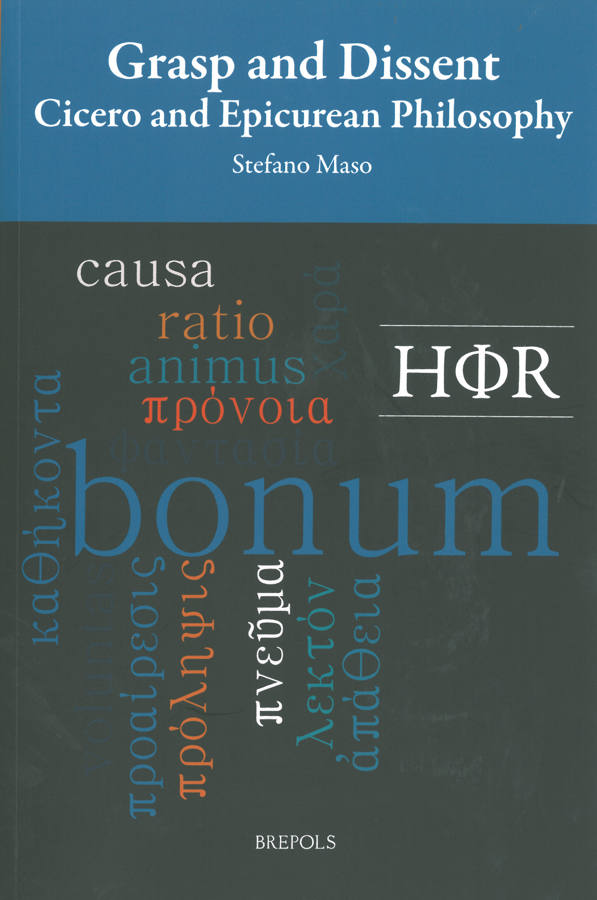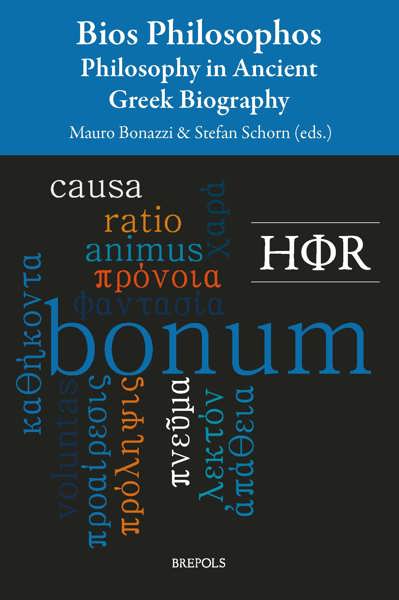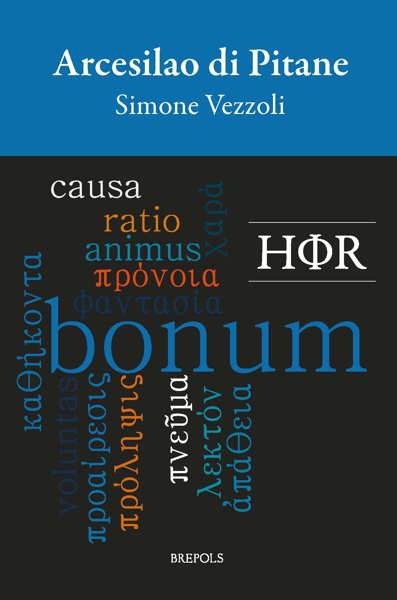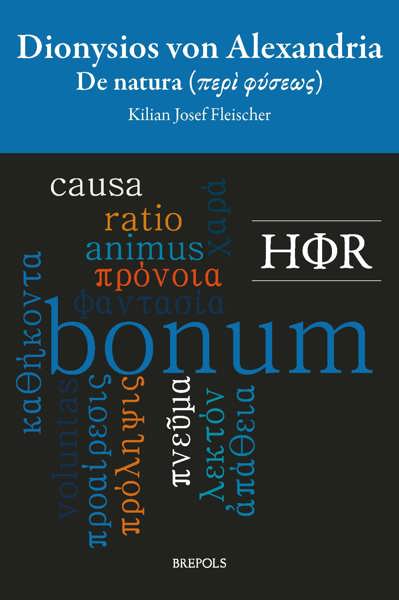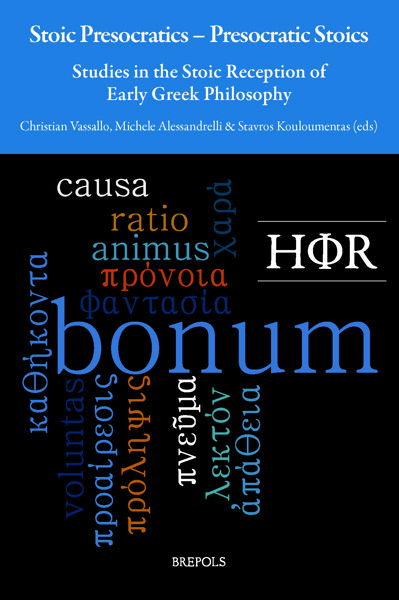
Grasp and Dissent: Cicero and Epicurean Philosophy
Stefano Maso
- Pages: 272 p.
- Size:156 x 234 mm
- Language(s):English
- Publication Year:2016
- € 85,00 EXCL. VAT RETAIL PRICE
- ISBN: 978-2-503-55030-5
- Paperback
- Available
“This book will be of considerable interest to those familiar with Hellenistic philosophy generally and with Cicero’s philosophical dialogues in particular. Maso’s close readings of the primary texts produce many valuable insights (…)” (Harald Thorsrud, in the Journal of the History of Philosophy, 54/4, 2016, p. 675)
“This is a systematic study of an exciting topic, namely, Cicero's relation to Epicureanism (…) I have great respect for Stefano Maso's scholarly work.” (Attila Németh, in Bryn Mawr Classical Review, 2016.12.29)
The present study centers on the distinctive characteristics of Cicero’s philosophical training; for the first time in a volume, the Roman philosopher’s relationship with Epicurean philosophy is accurately recreated. Not only does Cicero exhibit his lofty philosophical proficiency anchored in the Academic school, but he also proves an excellent authority on Epicurus’s proposed philosophy.
At the conclusion of the research, of course, Cicero will prove to be a fierce opponent of Epicureanism – an intelligent adversary, capable of studiose dicere contra Epicurum: understanding and criticizing, but also (and this is surely quite important for us today) reiterating the opposing party’s thought with great acumen.
Epicureanism accordingly played a pivotal role in Cicero’s philosophical development within the fields of physics, theology and ethics, paradoxically proving useful both in the formulation of a more skeptical and probabilistic philosophy and in the individuation of a path open to ἰσοσθένεια τῶν λόγων, but even more strongly bound to Stoicism. Unyielding and dogmatically binding, Epicurus’s doctrine endured throughout this dramatic historical moment situated at the end of the Roman Republic.
Introduction: Studiose dicere contra Epicurum
1. Antiepicurianism?
1.1 The Ciceronian Working Method2. Critiquing Epicurean Physics1.2 Traces of an Epicurian Education
2.1 The Atomistic Conception of Reality3. Epicurean Theology2.2 The “Clinamen” Theory According to Cicero
3.1 Divine Providence?4. A Theoretical Project’s Failed Plan3.2 The Gods’ Images
4.1 Epicurean and Academic Criticism in Reconstructing the History of the Philosophy in De natura deorum I5. Epicurus’s Pleasure4.2 The Doxographical Excursus
5.1 The Essence of Pleasure6. On the Tetrapharmakon and Suffering5.2 Pleasure and Virtue
6.1 DeathEpilogue6.2 The Doctrine of Limit and of Mediation
6.3 Cum dignitate otium: the Epicurean and Ciceronian telos

